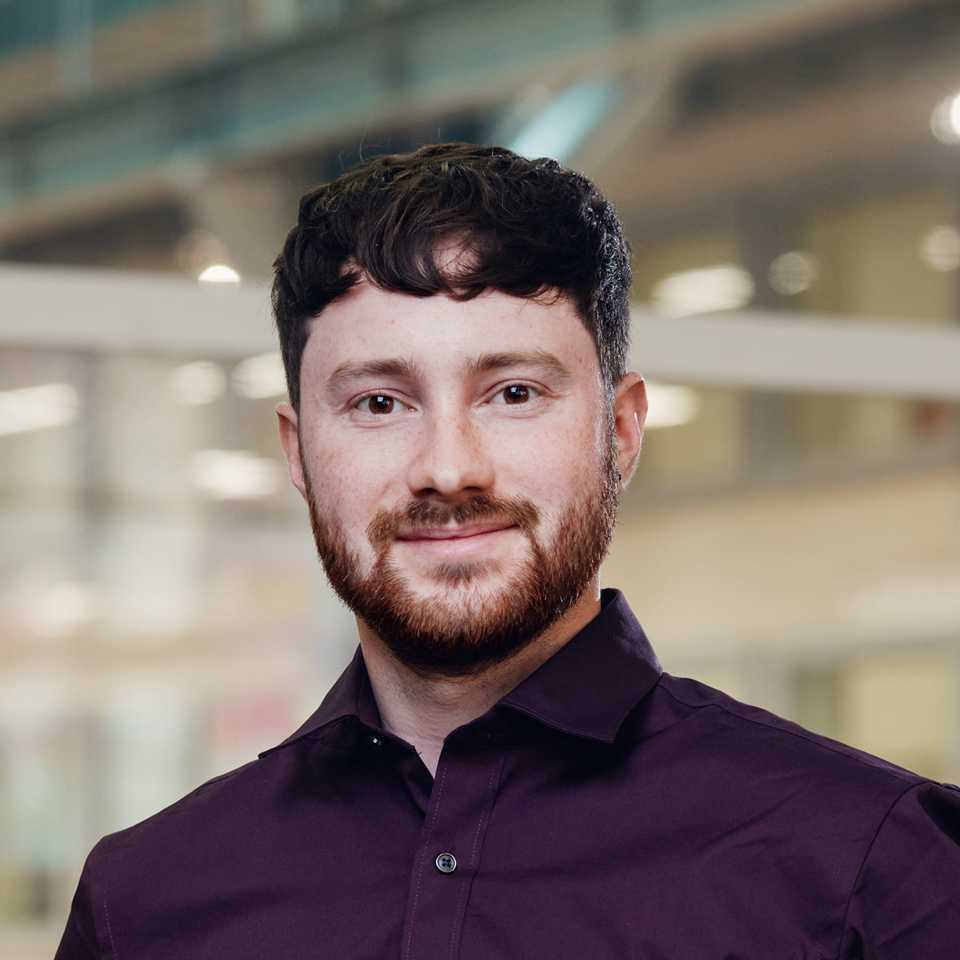Meet ESOP-fellow Thomas Zimmermann
Every year, up to thousand candidates apply for ETH Zurich’s Excellence Scholarship and Opportunity Programme (ESOP), between 50 and 60 applicants are awarded the prestigious grant depending on the availability of funds donated to ETH Foundation. Thomas Zimmermann from Switzerland studying Computational Biology | Bioinformatics is one of the 2024 excellent scholars. An interview.

What does the ESOP fellowship mean to you?
The ESOP means a lot to me, as it allows me to put all my energy into my studies at ETH Zurich. Instead of taking the normal path via high school, I originally did an apprenticeship as a software engineer. It was only during the subsequent preparation for university in the Passerelle programme that I discovered my passion for molecular biology and decided to pursue this direction. I was fascinated by how something as ancient as life itself could also be programmed, with small molecules interacting in a way that living cells emerge. I went to ETH Zurich to study biology at the Department of Biology, where I learned in great detail how biological cells work and how we can study them. The scholarship therefore also means a lot to me as recognition for the hard work during those years. Now, the master’s programme in computational biology and bioinformatics allows me to combine my passion for biology with my background in computer science.
The selection process for this fellowship is very competitive. What is your advice to fellows who aim to apply in the future?
My advice would be to be curious and find a topic that interests you. You should take enough time to write the pre-proposal for the Master's thesis, even if it is not necessarily the thesis you will end up doing during the master’s. You should also put enough effort into the other parts of the application and highlight the things that are really unique about you.
You do your Master’s in Computational Biology and Bioinformatics at the D-BSSE. What did you know about D-BSSE before you came here, and what was your motivation to come to ETH Zurich?
I honestly didn't know much about the D-BSSE before preparing my application, but I had heard that it was in Basel to be closer to industry and that it had a more technical focus on biological research. I have known about ETH Zurich for a long time, and after my apprenticeship, I felt that this was the place that would challenge me the most and allow me to work on the most interesting topics.
What were your first impressions…?
As I still live in Zurich and most of my current lectures are held there, I have not spent much time in the department itself yet. But the few times I have been in Basel, the amazing new building and its special atmosphere stood out. I am really looking forward to having more lectures and semester projects there. Additionally, I really enjoy the more computational lectures from the department.
“At D-BSSE, there are a lot of different areas in biological research that I find exciting, ranging from gene therapy or cancer research to the dynamics of epidemics. The department, its amazing new building and its special atmosphere really stand out.”Thomas Zimmermann, ESOP scholar at D-BSSE
Which research will you pursue at D-BSSE?
There are a lot of different areas in biological research that I find exciting, ranging from gene therapy or cancer research to the dynamics of epidemics. My goal is to apply modern computational methods to one of the topics that I am excited about.
Where do you want to be in 5-years time?
As I have never lived abroad, I would like to live in another country once for at least a year. After that, I don’t know yet whether I want to pursue a PhD or search for challenges in the industry. I hope that I can maintain my excitement for biology and find some place to apply it.
What are your hobbies, what do you do in your free time?
I like to go hiking and climbing in the mountains. I also play the guitar and I have recently started with some photography.
Once again: Big congrats, Thomas, and all the very best to you and your research!
Find information on the ESOP fellowship.
Learn about the Computational Biology and Bioinformatics Master's programme.